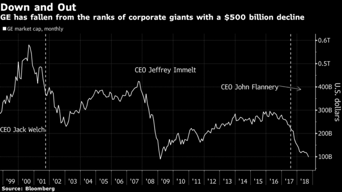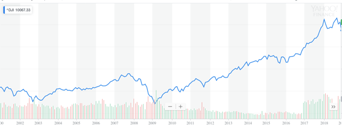Culture eats [blank] for breakfast…
I don’t know about you, but I get a little queasy every time I see a new iteration of this pearl of corporate wisdom. I worry that it gives people exactly the wrong idea of how to run companies.
Culture eats strategy for breakfast… so why fuss over sustained competitive advantage?
Culture eats compensation for breakfast… so why pay employees fairly?
Culture eats skill for breakfast… so why invest in training and tools?
Just the excuse some of us need to put off the hard work of leadership and indulge in flashy rhetoric. Talking about culture may feel like leadership, but in most cases, it’s a step in the wrong direction. When a once cool and quirky company—like Google, for example—hires an HR rep to talk about what being “googly” means to employees, you know it’s all going downhill from there.
Some 2,500 years ago, a Chinese mystic named Lao Tzu wrote:
“The Tao that can be told is not the true Tao.”
If Lao Tzu were a 21st-century corporate communications strategist, he could have said:
“The culture you brag about on your website is not your true culture.”
True culture rarely talks about itself because it lives off the record. It shows up quietly in the way you treat your people and the way they go about their jobs and treat each other. In fact, the more you rely on your true culture, the less need there is for corporate brainwashing.
All right, we get it, Tim. Most companies don’t live up to their own hype. But if you’re a leader tasked with improving your company’s culture, how can you do it without telling people what you expect?
Setting unrealistic expectations has ruined more businesses than I can count. A better place to start is to acknowledge what you have. Any positive culture shift can only come out of honesty and self-awareness. The longer you try to hide your true colors behind a false front, the more toxic your company gets. And here’s just one of many examples of what I’m talking about.
Not a year goes by that some big hyped-up company doesn’t take a humiliating loss. The biggest loser of 2018 was General Electric. The Dow Jones Industrial Average took the 126-year-old conglomerate off its list of the 30 largest American public corporations for the first time in 110 years.
GE got booted off the Dow after losing 80 percent of its value from its high in 2000. Most of the decline occurred under Jeffrey Immelt, GE’s chairman and CEO from September 2001 to August 2017. The year after Immelt stepped down, Bloomberg summed up his legacy in the following headline:
“GE’s $500,000,000,000 Market Wipeout Is Like Erasing Facebook.” 1
Here’s what GE stock looked like under Immelt:
While the rest of the market did this:
A pretty devastating record for any CEO, let alone the handpicked successor of Jack Welch. How do you think Immelt dealt with the failure of his life’s work?
He called it a success.
In 2017, Immelt published an article in the Harvard Business Review, titled “How I Remade GE.” He wrote:
“For the past 16 years GE has been undergoing the most consequential makeover in its history. We were a classic conglomerate. Now people are calling us a 125-year-old start-up—we’re a digital industrial company that’s defining the future of the internet of things. Change is in our DNA: We compete in today’s world to solve tomorrow’s challenges. We have endured because we have the determination to shape our own future. Although we’re still on the journey, we’ve made great strides in revamping our strategy, portfolio, global footprint, workforce, and culture.” 2
That’s a big drum roll for something that didn’t happen. GE did not, in fact, turn the corner from a hodge-podge of underperforming legacy businesses to a tech superstar. Under Jeff Immelt, the company made risky bets on disastrous projects, like GE Digital, a software division focused on the industrial internet of things. In 2018, less than a year after his retirement, GE was selling the assets of GE Digital to offset the billions the division had lost since its launch in 2015.
With his company headed full-speed toward a stock crash, Immelt gave the world lessons in transforming the corporate culture:
“You can’t have a transformation without revamping the culture and the established ways of doing things. In our case, that has meant choosing speed over bureaucracy and killing the bureaucracy, employing new ways to recruit talent, and retaining the best people by giving them an opportunity to lead.” 2
Not only did Immelt fall short of his claims but, according to Warren Buffett’s wingman Charlie Munger, he failed even to grasp the extent of the problem:
“I don’t know how to fix bureaucracy in a big place. I would regard it as a sentence to hell if they gave me some company with a million employees and told me to change the culture. I mean it’s hard to change the culture in a restaurant. If a business is already bureaucratic, how do you make it un-bureaucratic? It’s a very hard problem.” 3
No meaningful culture change took place under Immelt. Behind all the pomp and circumstance, things were quietly falling apart. If anything, Immelt lived and breathed the culture that brought him to the top of the corporate ladder at GE.
That culture included University of Michigan Business School professor Noel Tichy. Between 1985 and 1987, Dr. Tichy taught management education at GE’s Leadership Development Center. Back then it was Jack Welch who took credit for “transforming GE from an old-line industrial company to a diversified global manufacturing and services conglomerate.”
As long as GE remained in favor with Wall Street, Dr. Tichy never missed a chance to point out the part he played in the company’s success. While Welch was the genius at the helm, he, Noel Tichy, taught managers at all levels to lead and bring up future leaders. He prided himself on “embedding leadership development in GE’s genes.” 4
Dr. Tichy authored several books on being a change agent, cultivating leadership, and winning. He trademarked such groundbreaking concepts as “virtuous teaching cycle” and “teachable point of view.” However, thirty years later, it appears that self-sustaining leadership was not in GE’s DNA, and things kind of went haywire as soon as Jack Welch stepped down.
Here’s Charlie Munger again throwing a wet blanket on the whole leadership development scheme at GE:
“What caused the failure of performance at General Electric? . . . Part of it I would say, is the system at General Electric where you rotate executives through so different assignments as if they were so many army officers, building up a resume to see if they can become Generals. I don’t think that works as well as keeping people in one business for a long time and having them identify with the business, the way Berkshire does.” 3
When the hard times hit, neither a leadership pipeline nor an ability to create and navigate change turned up in GE’s DNA—but cooking the books did. The Wall Street Journal called GE Capital …
“[A] handy, deep bucket of financial spackle with which to smooth over the cracks in quarterly earnings reports and keep Wall Street happy. Sometimes that meant peddling half a parking lot on the final day of a quarter, or selling a part interest in a power plant only to purchase it back after the quarter closed.” 5
Welch famously beat analysts’ forecasts by a penny, quarter after quarter. Immelt, likewise, made use of accounting tricks to generate paper profits for his failing businesses. GE Power, for example, gave customers discounts on service contracts in exchange for paying earlier. This and other similar tactics led to a $1 billion cash flow shortfall from GE’s Industrial businesses. 6
Was GE’s “winning” culture mainly on paper, like some of its profits? Charlie Munger, for one, is suspicious:
”[Y]ou understand culture best where it’s really dominant. So for a place like Costco, and there the culture is a vast and constructive force. And it will probably continue for a very, very, long time. And then you get into General Electric, part decentralized, partly not. And it gets very complicated. What is the culture of General Electric? The businesses can be so radically different.” 3
But perhaps there was a common thread among all the GE businesses around the globe. Here’s Rachel Scheel of GE Healthcare, Great Britain:
“As I try to understand how GE got here, some common themes come to mind: being afraid to disappoint our leaders; trying to deliver on unrealistic expectations; and in some cases ignoring the ugly truth we were facing.” 7
At the executive level, GE, like so many other corporations, rewarded office politicians and financial engineers with pay and promotions. That’s where real GE culture took its roots, regardless of what Dr. Tichy preached in his management education class.
To GE’s defense, there’s an element of faking ’til you make it in any enterprise. The trouble starts when there are too many fakers and not enough makers at the top. The impostors drown out the voice of any real business acumen left in the company, and the whole thing comes down like a house of cards.
It’s not always easy to spot incompetence, even in hindsight—and much less in foresight. Jack Welch reportedly gave himself an F for picking his successor. No word on picking Noel Tichy to enlighten the next generation of GE leaders. If GE got blindsided by BS-artistry and corporate climbing, what can other companies do to protect themselves?
In a nutshell, that’s what a positive work culture is for. Make decency and business sense a norm so that everything else stands out. In particular, watch out for herd mentality, wishful thinking, yesmanship, and shit-sandwiching bad news. Pay attention to performance rather than salesmanship and status. How do you know this person did a good job? What steps did he take and what were the results? Was his judgment correct? Can you trust his numbers?
Jeff Immelt concludes his piece in the Harvard Business Review with a classic shit sandwich. He says he’s accomplished great things and the future looks bright:
“My legacy at GE will be a complicated one. In our core businesses, earnings have tripled during my tenure. Our $324?billion backlog is up more than $150?billion in the past decade. We have record-high market share. Our financial performance has outpaced that of our peers over the past five years. We have paid more in dividends during my tenure than during the previous 110 years of GE history combined.” 2
Buried in the midst of all that optimism is one short sentence about the stock price:
“Nonetheless, our P/E ratio has gone from 40:1 to 17:1 in the past decade, and the stock price has underperformed.” 2
Not to worry. The market hasn’t yet caught up with his brilliance, but the future will prove him right:
“Thus it is with transformation. At GE we are never in episode 10. It will take years for GE to fully reap the benefits of the transformations. But as I contemplate my departure, I love where the company is positioned. I love what we’re targeting. The company in 2001 was certain that the future would look like the past. The company in 2017 is ready for any future. I’m confident that I’m handing over a company that will flourish in the 21st century.” 2
Sorry, Jeff. Your legacy is not all that complicated. Not only the market, but GE itself is figuring it out. Just a few months after his departure, the company posted Rachel Scheel’s soul-searching letter on its public website. It reads:
“We know better than to think the problem will go away if we avoid it and don’t talk about it. To make a GE that will be around for another 125 years, we must get comfortable speaking our minds with complete candor, and we must not be afraid to ask for help. For us to create a culture where we can thrive, we need to ask ourselves three key questions:
- What creates a culture work environment where we are confident to speak up and ask for help?
- How do we create an environment where we are not afraid to disappoint when the message is hard to swallow?
- Is our culture something we live each day or is it reserved for wallet cards and company posters.” 8
Sound advice. It remains to be seen whether GE will follow it. The company’s rhetoric has hardly changed since Noel Tichy’s days. The word “transformation” is still bouncing up and down the official channels. When you visit the “Culture” page under “GE Careers,” you’re invited to “join the transformation”:
“GE is transforming itself into the world’s leading digital industrial company – bridging physical and analytical worlds, selling at scale in 175 countries with the best local leaders, and creating a better GE for employees and customers.”
That’s what Welch and Immelt have been saying all along.
Can they just shut up and do it?
_____
If you like transformation, you might like my book, because it won’t let you get away with just talking about it.
_____
SOURCES
[1] https://www.bloomberg.com/news/articles/2018-10-01/ge-s-500-000-000-000-market-wipeout-is-like-erasing-facebook
[2] https://hbr.org/2017/09/inside-ges-transformation
[3] https://www.thendobetter.com/investing/2018/3/10/charlie-munger-on-ge-culture
[4] “Noel M. Tichy: The Thought Leader Interview” by Randall Rothenberg, February 14, 2003 / Spring 2003 / Issue 30 (originally published by Booz & Company https://www.strategy-business.com/article/8458?gko=87e3c)
[5] “GE Powered the American Century—Then It Burned Out” by Thomas Gryta and Ted Mann, The Wall Street Journal, December 14, 2018 https://www.wsj.com/articles/ge-powered-the-american-centurythen-it-burned-out-11544796010?mod=hpleadpos7
[6] “Can GE Survive Its Cooked Books?” By Peter Cohan, Forbes, December15, 2018 https://www.forbes.com/sites/petercohan/2018/12/15/can-ge-survive-its-cooked-books/#4ff3d2702841
[7] “Culture – Do We Have What It Takes?” by Rachel Scheel, GE Healthcare, GB, February 20, 2018 https://www.ge.com/careers/culture/culture-do-we-have-what-it-takes
[8] “Culture – Do We Have What It Takes?” by Rachel Scheel, GE Healthcare, GB, February 20, 2018 https://www.ge.com/careers/culture/culture-do-we-have-what-it-takes














 info@axerosolutions.com
info@axerosolutions.com 1-855-AXERO-55
1-855-AXERO-55


